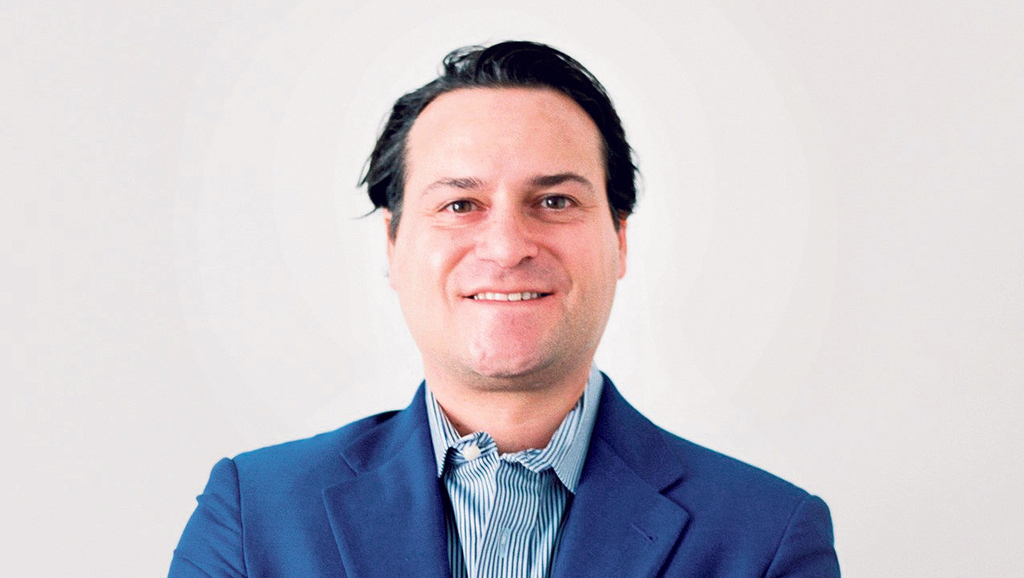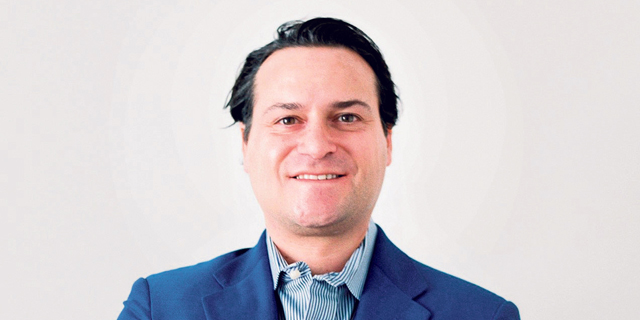
Interview
"The SPAC tool is misused, the market for PIPEs is dead”
“We have databases on dozens of Israeli companies that are SPAC-ready, perhaps not with multi-billion dollar valuations, but certainly half a billion to a billion dollars,” says Ezra Gardner, who raised $115 million for the Gesher I Acquisition Corp. SPAC, which is seeking to merge with an Israeli tech company
"SPACs are a tool in the investor and corporate toolkits. But the problems experienced by many companies that have gone public through mergers with SPACs in 2021 are due to incorrect use of this tool by management teams and their bankers. In the last year, many legal and financing structures, specifically PIPEs (Private Investment in Public Equity) that previously were not applied to SPACs were introduced to the space, changing the whole dynamic and purpose of the structure. Now, as a result, entrepreneurs with whom we are speaking better understand the difference between a professional SPAC sponsor and the many celebrities, like Shaquille O’Neal, who simply lend their names to the latest IPO but actually bring nothing to the table."
These are the words of investor Ezra Gardner, 44, who has been working in the investment industry since 1999 and investing in SPACs since 2005 and earlier this month completed an oversubscribed $115 million IPO for Gesher, a SPAC sponsored by Varana Capital, High House, and other partners.
In light of recent events in the SPAC industry, which include large, persistent redemptions of cash from the trust accounts of SPACs and the attendant collapse of the newly de-SPACed shares that immediately followed, it seems as if there is no point in raising money this way. Indeed, a week ago, Ilan Paz, CEO of Barclays Investment Bank in Israel, told Calcalist that at least 30 high-tech companies that had been in negotiations to merge with SPACs had abandoned the idea.
What's more, there is about $100 billion sitting in SPACs still seeking to merge with companies. Most SPACs will fail and with good reason. To illustrate: Of the multiple Israeli unicorns created by SPACs, only ironSource is traded above the value of the deal price. In fact, some of these companies lost their “unicorn” status after de-SPACing, meaning they dropped below a market cap of one billion dollars after the IPO. These companies include Valence, Outbrain, Autonomo, and Innoviz.
"There is a difference between a professional sponsor and Shaquille O'Neal"
Gardner, a successful Wall Street veteran, who worked for many years at investment banks UBS and JPMorgan before founding Varana Capital with his business partner in 2011, is convinced Gesher will avoid the mistakes his "SPAC sponsor" colleagues have made and will properly employ the SPAC IPO method of merging with a private company. "2020/2021 SPAC sponsors forgot - or neglected to focus on – the two main roles of a SPAC sponsor (the entrepreneurs who raise the money for the SPAC): The sponsor’s job is not merely to raise the capital for the IPO but needs to deliver it to the Target Company The sponsor also needs to be a true partner to the merged company, helping management guide it through the private-to-public transition - a hard job that starts before and continues long after the merger.
Here Gardner aims an arrow at the high profile celebrities who raised money for SPACs in the past year, including renowned former basketball player Shaquille O'Neal, legendary tennis player Serena Williams, and former NFL player Colin Kaepernick, whose famous kneeling caused a major storm in the U.S. In addition to these celebrities, numerous Wall Street retirees who have no expertise in the technology industry joined the party, as well. A second arrow is directed at the high redemptions from the SPACs on the eve of the IPO that leave the company with much less money than it was promised. The prominent examples among Israeli companies are Cellebrite, from which investors withdraw 87% of the SPAC commitment, and HIPPO Insurance (83%).
Gardner explains, "In the current incarnation of the SPAC, lawyers dropped the minimum cash clause that had been in effect for years. Previously, there had been a fixed clause stipulating that if the SPAC does not bring at least 50% of the capital raised in the trust, the TargetCo can exit the deal. With this fixed clause removed, SPACs attracted arbitrageurs who realized they could redeem their investment and still keep the options in the de-SPACed NewCo. Where once there existed a financial prisoner’s dilemma – an investor who wanted to redeem money but keep the warrant had to hope that most other investors would not do the same – the new method made this dilemma obsolete. It was like waving red meat in front of a tiger."
Another “poorly-considered change”, as Gardner puts it, in the new SPACs are PIPEs, which previously were not packaged with SPACs. PIPEs are another fundraising idea courtesy of the many bankers seeking additional fees in the SPAC arena. These structures are supported by large institutions that are not granted the right to redeem their capital and thus ultimately guarantee the capital required for the SPAC and TargetCo to merge.. "When bankers introduced the PIPE to SPACs, they gave it several specious justifications. But the real intent of a PIPE was to signal that “if the Goldman Sachs or Blackstones of the world are willing to pay that price, you smaller investors have to agree to the deal”.
“The truth is that the PIPE investors were just buying $20 bills for $10 for a brief unusual period." Gardner said, referring to the sharp jumps SPACs experienced earlier this year after the announcement of a merger, and the implied valuation a deal received by association with those “more sophisticated” PIPE investors.
But lately, these sophisticates have realized that they unwittingly have taken part in a round at their expense. "For Wall Street bankers, raising a PIPE is a high-commission deal, so bankers pushed them for everyone. Why did all the big, smart people buy? Because, as they say on Wall Street, when the music plays you have to dance. But now it has stopped, and many players were left without a seat. Welcome to the new normal, same as the old normal."
"The Trump event is unique and silly"
In recent months, there has indeed been almost no PIPE fundraising, which has led to an almost complete halt to new SPACs. One unusual exception is the DWAC SPAC, which made headlines last week after announcing it would merge with a new social network set up by former U.S. President Donald Trump. DWAC stock rose from $10 to $94 in just two days. "The PIPE market is completely closed, and Trump's event is unique and silly," Gardner says in his direct language. "Furthermore, SPAC deals are being cancelled for failure to find PIPEs. This is where we will differentiate ourselves through Gesher I and any SPAC we do that follows. We are not interested in simply doing a deal; we want to create lasting value for our merger partner, our investors, and all stakeholders.”
Related articles
Gardner's new SPAC has no secondary investment component. Any prospective transaction will be predicated on the $115 million raised three weeks ago and, uniquely, $45 million in stand-by Forward Purchase Agreements from long term UBS partner relationships, among others. Even so, why would a company still want to go the route that has not yet proven itself to be a real alternative to an IPO on Wall Street? “SPACs are not for everyone, and that’s another mistake of the past year," Gardner states. "However, if your company has high capital needs, you want to go public, and are open to a sponsor team with extensive experience helping public companies, you should choose a SPAC."
Gardner continued, "Despite appearances to the contrary, there are still many companies in Israel that need $100 million in capital and cannot get it in the private market, We have databases on dozens of Israeli companies that are SPAC-ready, perhaps not with multi-billion dollar valuations, but certainly half a billion to a billion dollars. These are primarily revenue-generating companies, with executives operating under the radar, who will benefit from our capital and our experience. In fact, we strongly believe the dynamics around Gesher, our investment philosophy, and our cooperative approach will set a trend for this next phase of SPACs."
